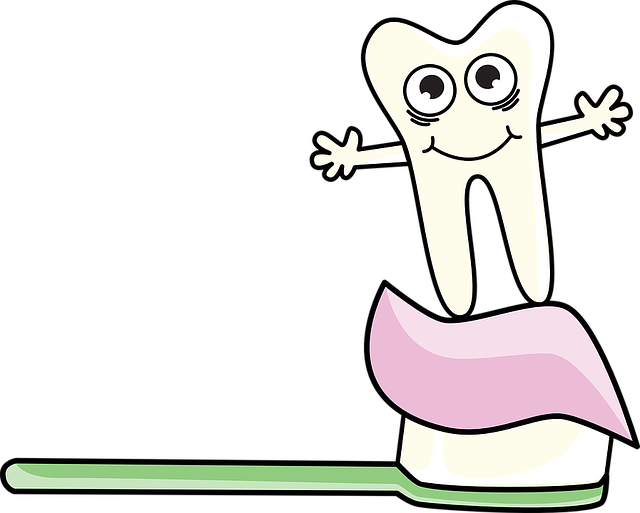Running a dental office comes with unique risks that necessitate comprehensive liability insurance for dentists. This coverage protects against financial losses from legal fees and settlement costs arising from medical errors, incorrect diagnoses, patient injuries, or equipment malfunctions. Choosing the right provider involves evaluating policy scope, network strength, customer service, and claims processing efficiency. Securing adequate dental liability insurance is crucial to safeguard against potential legal risks, with costs varying based on practice size, location, risk level, and desired coverage. Dentists should thoroughly research providers' offerings and understand the claims process.
Need tailored dental office insurance fast? This comprehensive guide is your roadmap. We explore the critical aspects of understanding dental practice risks, including common liability coverage types for dentists. Learn about key factors to consider when choosing an insurance provider and the straightforward application process. Discover common mistakes to avoid and gain insights into cost, coverage, and benefits. Get informed and secure the protection your dental practice needs today with our expert advice on liability insurance for dentists.
- Understanding Dental Practice Risks and Liability Insurance
- Types of Liability Insurance for Dentists
- Factors to Consider When Choosing a Dental Insurance Provider
- The Application Process: What to Expect and Prepare
- Common Mistakes to Avoid When Obtaining Dental Office Insurance
- Cost, Coverage, and Benefits: A Comprehensive Guide
Understanding Dental Practice Risks and Liability Insurance

Running a dental office comes with unique risks and responsibilities, which is why having adequate liability insurance for dentists is paramount. This type of insurance protects dental professionals against potential financial losses arising from patient injuries or medical errors. When a patient suffers an injury during a procedure or experiences adverse effects due to treatment, they may file a lawsuit seeking compensation for their damages. Liability insurance covers legal fees and settlement costs, offering vital protection for dentists’ personal assets and practice sustainability.
Understanding these risks is the first step towards securing appropriate coverage. Common dental practice concerns include negligence claims related to incorrect diagnoses, failed procedures, or administering the wrong medication. Additionally, issues like patient discomfort, infection control mishaps, or equipment malfunctions can lead to liability issues. Liability insurance for dentists provides a safety net, ensuring that these potential setbacks do not cripple a practice or result in significant financial strain on the dentist personally.
Types of Liability Insurance for Dentists

Dentists, like any healthcare professionals, face unique risks and responsibilities that require specific insurance coverage. One of the most critical components of this is liability insurance for dentists, designed to protect them from potential claims and lawsuits related to their practice. This insurance helps cover the costs associated with legal defense and settlement if a patient alleges negligence or malpractice.
There are several types of liability insurance options available tailored to meet the diverse needs of dental practices. Professional liability insurance, also known as malpractice insurance, is a standard option that shields dentists from financial loss due to errors or omissions during treatment. General liability insurance further broadens coverage to include accidents or injuries occurring on the practice premises. For more specialized risks, dental practices can opt for comprehensive packages that incorporate both professional and general liability, ensuring they’re prepared for a range of potential issues.
Factors to Consider When Choosing a Dental Insurance Provider

When selecting a dental insurance provider, several key factors come into play. Firstly, consider the range and scope of services covered by the policy. Different plans cater to various needs—from basic general dentistry to more specialized procedures. Ensure the provider offers comprehensive coverage that aligns with your practice’s requirements, including liability insurance for dentists, which is paramount to protect against potential legal risks.
Additionally, evaluate the network of dental professionals associated with the insurance company. A robust network allows patients to access a wider range of care options, while also potentially influencing costs and convenience. Look into the reputation of the insurer as well, assessing their customer service, claims processing efficiency, and overall reliability in delivering on their promises.
The Application Process: What to Expect and Prepare

The application process for dental office liability insurance is straightforward but requires careful preparation. First, compare different insurance providers and their offerings to find a policy that aligns with your practice’s needs. Look for comprehensive coverage that includes professional liability, general liability, and any specialized risks specific to your dental office, such as malpractice or property damage.
Once you’ve identified suitable options, gather essential documents like business registration certificates, licenses, and proof of continuing education for all dentists associated with the practice. Prepare detailed information about your facility, including layout, equipment, and any unique features. This step ensures a smooth application process and helps insurers assess your office’s potential risks accurately.
Common Mistakes to Avoid When Obtaining Dental Office Insurance

Many dental professionals fall into common pitfalls when securing liability insurance for their practices, which can lead to inadequate coverage or costly mistakes. One of the biggest blunders is overlooking the scope of protection offered by different policies. Dental offices have unique risks, such as patient injuries during procedures or potential malpractice claims. Therefore, a general business insurance policy might not be sufficient; specific dental liability insurance is necessary.
Another mistake is rushing into the first available option without thorough research. Each insurance provider has its own set of exclusions and limitations. Dentists should carefully review the policy details, including what’s covered, any deductibles, and the limits of liability. They must also understand the claims process to ensure a smooth experience if they ever need to file a claim. Additionally, staying informed about regulatory changes in dental insurance is vital to making informed decisions.
Cost, Coverage, and Benefits: A Comprehensive Guide

When it comes to dental office insurance, understanding cost, coverage, and benefits is crucial for any dentist looking to secure adequate protection. Liability insurance for dentists is an essential investment that shields against potential financial risks associated with medical malpractice claims. The costs can vary widely depending on several factors, including the size of your practice, location, level of risk involved, and the specific type of coverage you require.
Coverage under liability insurance typically includes professional negligence, bodily injury, and property damage. Professional negligence covers mistakes or oversights in dental treatment that lead to patient harm, while bodily injury and property damage protect against claims resulting from accidents or incidents within your office. Benefits extend beyond financial protection; they also include access to legal defense in the event of a claim, helping to navigate complex legal processes and ensuring your rights are protected.
